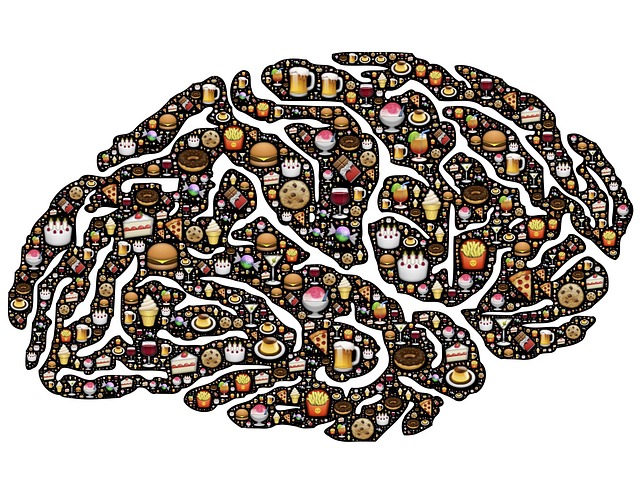If there were substances in your body that regulated your hunger, metabolism, and your energy levels (among many other processes), and certain foods that affected those substances in such a way as to decrease cravings, increase metabolism and energy levels would you eat those foods? Would you avoid the foods that cause those substances to tell your body to store fat and slow your metabolic rate?
Well, those substances are hormones and they manage so many processes in your body. Whether your body is a fat burning machine or a fat storing machine is controlled by hormones, not calories. You can have either a positive or negative effect on those hormones by the types of foods you eat and even the timing of when you eat them.

Say hello to my little hormone friends: insulin, glucagon, and leptin. These three little buggers play a major role in your body’s ability to store or burn fat.
Insulin
Insulin is a hormone produced in your pancreas and is responsible for getting glucose (aka sugar) out of your blood and into your muscles and liver to be stored and used for energy. When there is a prolonged high demand for insulin (meaning years of eating high carbohydrate foods), the cells of the body become resistant to it. The more resistant our cells become to insulin, the more insulin the brain tells the pancreas to produce to try to get the sugar out of the blood. Insulin’s job is to store energy, so the more we call upon insulin and the more the pancreas produces, the more we tell the body to store energy. What can’t be stored in our muscles or liver gets converted into fat. Continuing to eat those higher carb foods will continue the storage of fat.
Glucagon
Glucagon, on the other hand, prevents blood sugar from dropping too low. It has the opposite job as insulin. Glucagon is also produced in the pancreas but it’s job is not to store energy like insulin. Glucagon keeps blood sugar from dropping too low between meals through a few different ways. It stimulates the release of glycogen (which is just stored glucose) from your liver AND can stimulate the breakdown of fat to be turned into glucose. Glucagon also stimulates fat cells to release fatty acids to be used for energy. So, glucagon has the ability to cause fat burn as opposed to insulin, which is used to store energy.
Leptin
Leptin is a hormone produced by your fat cells. That’s right, your fat actually produces hormones. Put simply, leptin tells your brain that you have enough food stores (fat), you don’t need to take in more, and your metabolism can burn at it’s normal rate. Leptin has other jobs as well but it’s main one is to help regulate your hunger and metabolism by keeping you from starving or overeating.
For a long time leptin worked well in human bodies. When people ate enough, leptin levels rose, and when they needed more fuel leptin levels would drop and they’d feel hungry. Fast forward to present day and people are eating diets with tremendous amounts of unnecessary carbs and storing more and more energy. Leptin levels stay elevated and just like insulin resistance – or any kind of resistance- the more you continue to overproduce a hormone, the more the body becomes resistant to it. The brain is not receiving the message from leptin that the body has sufficient stores of fuel and fat so your brain tells you to eat more.
The cycle must be stopped!
The same thing happens with insulin. The high carb diets require more and more insulin, leading cells to become resistant to it and your brain thinks it just needs to tell the pancreas to pump out more and more insulin.
More insulin means more fat storage. More fat means more leptin. More leptin means more cravings. And on and on we go!
What’s the message you’re trying to send?
Our bodies are wired to store excess carbohydrates as fat so that we can survive times of food scarcity. Food isn’t scarce for most of us, certainly not if you’re reading this post. We also aren’t overly active. Most of us live largely sedentary lives and we eat far more easily-stored-as-fat-carbohydrates than what we need. We are surrounded by obviously sugary foods but also foods that are sneaky sources of sugar.
Chips of all kinds, pretzels, crackers, many breads, pastas. You might as well think of those foods as sugar because they are quickly converted into sugar when you eat them. To the metabolically healthy and pretty active person, they are not going to have the same negative effects as they do to someone who is trying to lose body fat, at least not from a fat-gain perspective. I still wouldn’t say those are healthy foods for anyone (though there are some decent versions of some of them), but from a fat loss/gain perspective there are people who can “get away” with having those carb bombs from time to time. These foods are sugar and when you eat them the message is sent to produce a lot of insulin.
If you have blood sugar issues, or belly fat that won’t budge those foods are sending the message to store fat. Even healthier carbohydrates like whole grains, fruits, and starchy vegetables like potatoes are going to raise insulin and tell your body to store fat. Doesn’t matter if you only eat 100 calorie packs of pretzels and a 100 calorie whole wheat sandwich thin. If you are insulin resistant you need to take a different approach because those foods are adding fuel to the fire.
The definition of insanity is doing the same thing over and over and expecting different results.
So why are we still counting calories and points, putting food in little tiny portion containers, or ordering weight loss “foods” (aka edible products) and expecting different results? Sure, you can lose some weight doing any of that. But have you ever met anyone who’s had lasting fat loss with those methods? Probably not because as soon as you stop, the weight starts to creep back on.
Those plans aren’t teaching you to eat the right foods at the right time to send the right MESSAGE to your hormones. Calories are just a unit of measurement. They’re not evil little creatures that you need to fear. Worry less about how many calories you’re eating and more about what FOODS you’re eating and what message those foods are sending your body.

Great article
Thank you, Beth!